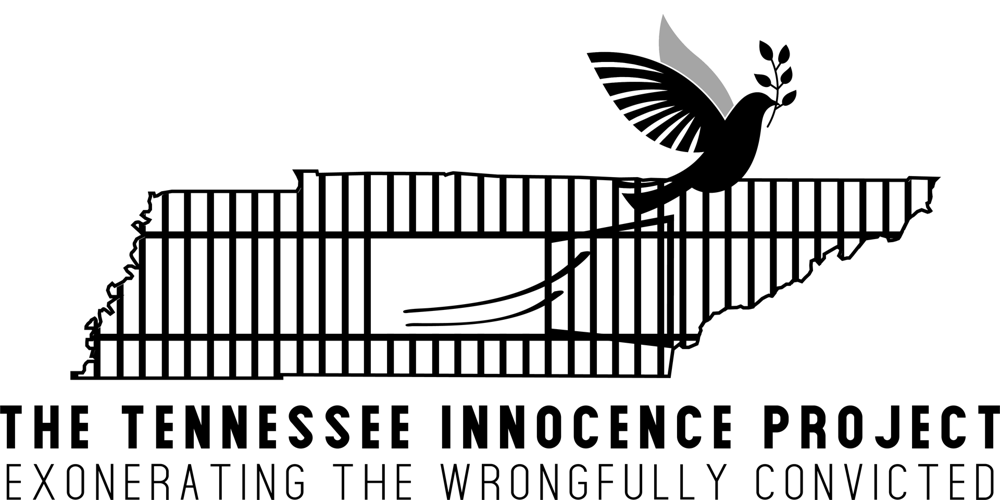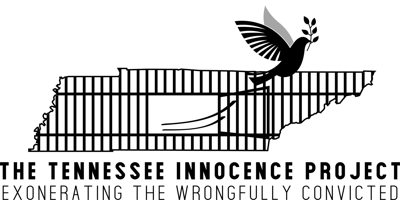
Jessica Van Dyke
Nearly a decade ago, as a law student at the University of Tennessee, Jessica Van Dyke cut her teeth on post-conviction work in the university’s Wrongful Convictions Clinic. With other law students, she worked on behalf of people with credible claims that they were innocent of the crimes for which they’d been sent to prison. Van Dyke had success in a few cases, but the program was eventually dissolved.
In the years since, defense attorneys and criminal-justice reformers have lamented the fact that there was no outpost in Tennessee of the nationally known Innocence Project. Founded in 1992, the Innocence Project works to exonerate the wrongfully convicted through DNA testing; to date, its work has freed 364 people. According to the National Registry of Exonerations, there have been more than 2,300 exonerations in the United States since 1989. But efforts to correct wrongful convictions in Tennessee have lagged behind, because — after a couple of short-lived attempts — there has not been an organization dedicated solely to the task.
That’s changing now. Van Dyke has launched the Tennessee Innocence Project as a stand-alone nonprofit, which will focus on litigating wrongful convictions and obtaining exonerations, as well as training law students and attorneys about how to work such cases.
The Tennessee Innocence Project will have an office south of Broadway, in Rutledge Hill, starting March 1. Its new website succinctly makes the case for the importance of having such an organization in the state: “Tennessee has only had 21 exonerations arising out of 19 cases, according to the National Registry of Exonerations. This is significantly lower than other states with a similar incarceration rate. For example, North Carolina has seen 60 exonerations, while Louisiana has 53 exonerees, and Michigan has 87.”
Van Dyke tells the Scene that while TIP is not yet officially part of the Innocence Network, a national network of loosely affiliated organizations, staff from the New York-based Innocence Project has been very involved in helping her get things up and running. She says an initial fundraiser is in the works for early summer.
For now, it’ll be just Van Dyke operating as lead counsel, although if fundraising goes well she hopes to hire more attorneys and investigators in the future. Her plan is to partner with local firms on every case, pitching them to attorneys looking to do pro bono work. Additionally, the law schools at Vanderbilt University, Memphis University and the University of Tennessee have committed to an externship program.
The organization will largely focus on cases with DNA that either hasn’t been tested, or can be retested, as well as cases relying on faulty forensic science.
“What I think I’ve realized more and more is that ... there are some bad actors out there,” Van Dyke says. “There can be bad [district attorneys], bad police officers. There can be police officers that are intentionally bad, and — we’ve all seen this — there can be police officers that are maybe just lazy or not very well-trained.
“But the other thing that I’m learning … is there are a lot of people that just make mistakes because we’re humans. And this whole system is controlled and operated by humans, so you’re going to have human error. The thing that I like to convey to people is it’s not about placing blame necessarily — it’s about investigating, looking into the case, figuring out why this happened and [whether it’s] right.”
Van Dyke is bringing a case with her, one that she’s worked on professionally and has gotten under her skin personally. It’s the case of Thomas Clardy, who was convicted and sentenced to life in prison in 2007 for the murder of Kirk Clouatre. Clardy has always maintained his innocence, and there was no physical evidence linking him to the crime. Clardy’s wife testified that he’d been home with her at the time of the murder, but the victim’s brother — who had also been shot but survived — identified Clardy in a photo lineup. Shell casings found at the crime scene weren’t tested before the trial. When they finally were, years after Clardy’s conviction, they matched shell casings from an earlier murder, and produced what are arguably better suspects for Clouatre’s murder. One of the men linked to the shell casings even matched an initial eyewitness description of the shooter who killed Clouatre.
“I think, in a nutshell, whenever I got the ballistic testing that gave me these alternate suspects, I’m pulling them up and I’m like, ‘Oh my God, this is such a better fit, and this makes sense,’ ” Van Dyke says. “I think I’ve never understood why I could see this so clearly, but no one else was seeing it on the same wavelength.”
Van Dyke’s first goal as head of the new Tennessee Innocence Project will be to get the courts to see what she sees in Thomas Clardy’s case. And there are many more like it.







